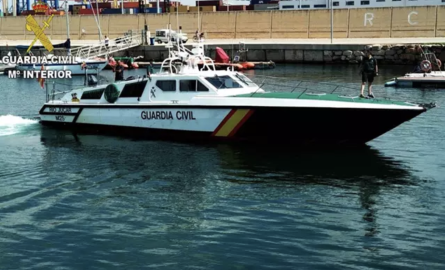Tragic Discovery: Migrant Bodies Found Off Mallorca Coast
The Heartbreaking Incident
Recently, a tragic event unfolded off the coast of Mallorca, where the bodies of several migrants were discovered in the waters. This incident has raised alarm bells regarding the perilous journey many undertake in search of a better life, often risking everything for the hope of safety and opportunity. The migrants were found with their hands and feet bound, indicating the grim realities that can accompany such desperate attempts at migration.
Understanding the Context
This shocking discovery is part of a broader narrative surrounding migration in Europe, particularly in regions like the Balearic Islands. The Mediterranean Sea has become a notorious route for migrants fleeing conflict, poverty, and persecution in their home countries. The journey is fraught with danger, and many do not survive the treacherous passage.
In light of this incident, it is essential to discuss the implications for migration policies and humanitarian efforts. The European Union has faced criticism for its handling of migration, with many advocating for reforms that prioritize human rights and safety.
Migration Policies and Human Rights
The discovery of these bodies highlights the urgent need for comprehensive immigration reforms. Advocates argue that current policies often fail to protect vulnerable individuals, leading to tragic outcomes. Humanitarian parole programs could provide a lifeline for those in dire situations, allowing them safer passage and temporary protection while their cases are processed.
Furthermore, organizations are calling for more robust international cooperation to address the root causes of migration, including poverty and violence in countries like Nicaragua and Haiti. The recent humanitarian parole news emphasizes the need for sustainable solutions that go beyond merely addressing the symptoms of migration.
The Role of Law Enforcement
In the aftermath of this discovery, questions arise regarding the role of law enforcement in migration control. The Department of Homeland Security and local authorities must balance the enforcement of immigration laws with the need to protect human rights. Instances of ICE raids and deportations have raised concerns about the treatment of migrants and the potential for abuse within the system.
Moreover, the recent discussions surrounding the 287g program and its implications for law enforcement practices further complicate the landscape. Communities in regions like San Bernardino and South Carolina are particularly affected, as local law enforcement agencies grapple with their responsibilities under federal immigration laws.
Community Response and Support
In response to the tragic events, community organizations and advocacy groups are mobilizing to provide support for migrants and their families. Programs aimed at assisting with immigration applications and providing legal resources have become increasingly vital. The importance of professional immigration services cannot be understated, as they help navigate the complex landscape of immigration law.
Additionally, local communities are stepping up to provide humanitarian aid to those in need. Initiatives focusing on education, healthcare, and legal support are crucial for fostering integration and stability for migrants who have survived harrowing journeys.
Looking Ahead: The Need for Change
The heartbreaking discovery of migrant bodies off the coast of Mallorca serves as a stark reminder of the ongoing migration crisis. It underscores the urgent need for reform and a more humane approach to immigration. As nations grapple with the challenges of migration, it is crucial to prioritize human rights and dignity in policy decisions.
Immigration reform news continues to circulate, with advocates pushing for changes that would prevent such tragedies in the future. The call for a comprehensive review of immigration policies, including the implementation of more accessible advance parole programs, remains at the forefront of discussions.
In conclusion, the tragic loss of life in the Mediterranean is a call to action for all stakeholders involved in migration policy. Only by working together can we create a safer, more equitable environment for those seeking refuge and a better life. The time for change is now, and it is imperative that we respond with compassion and urgency.










